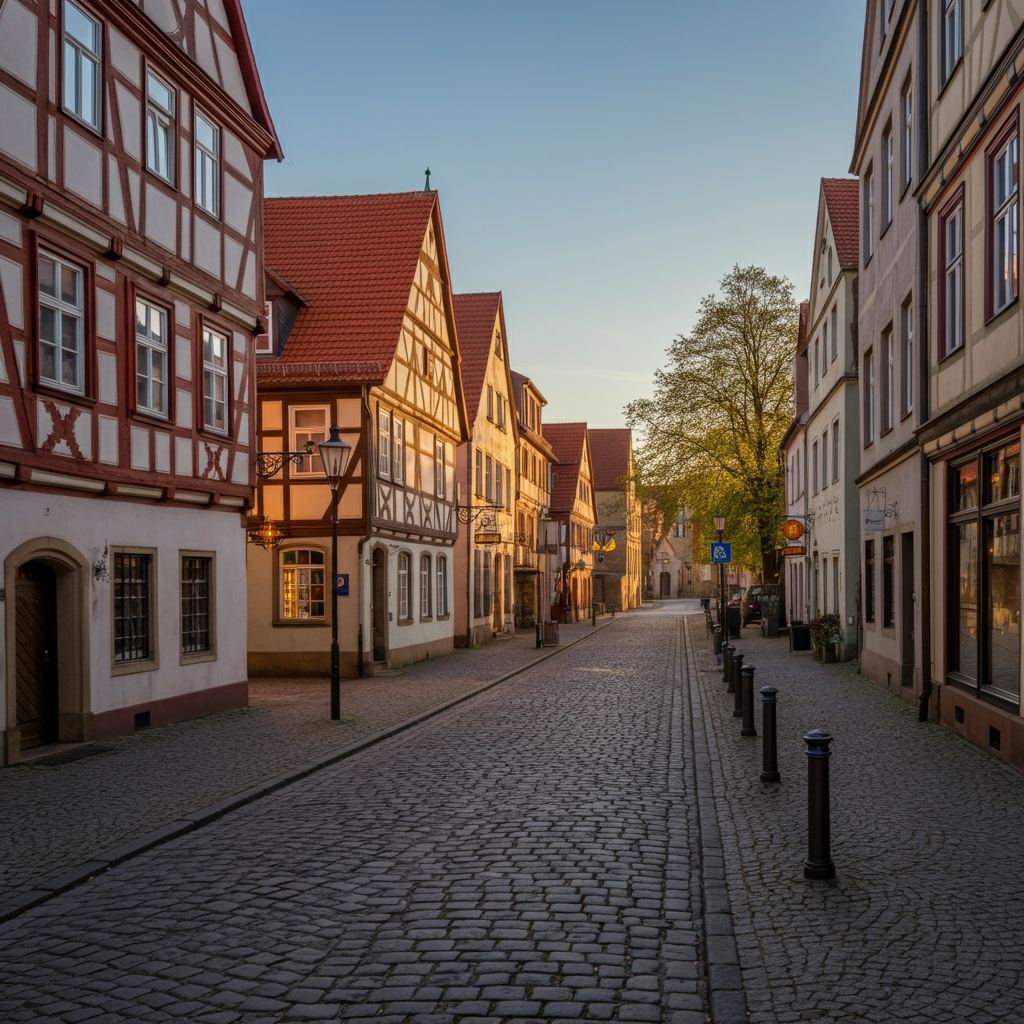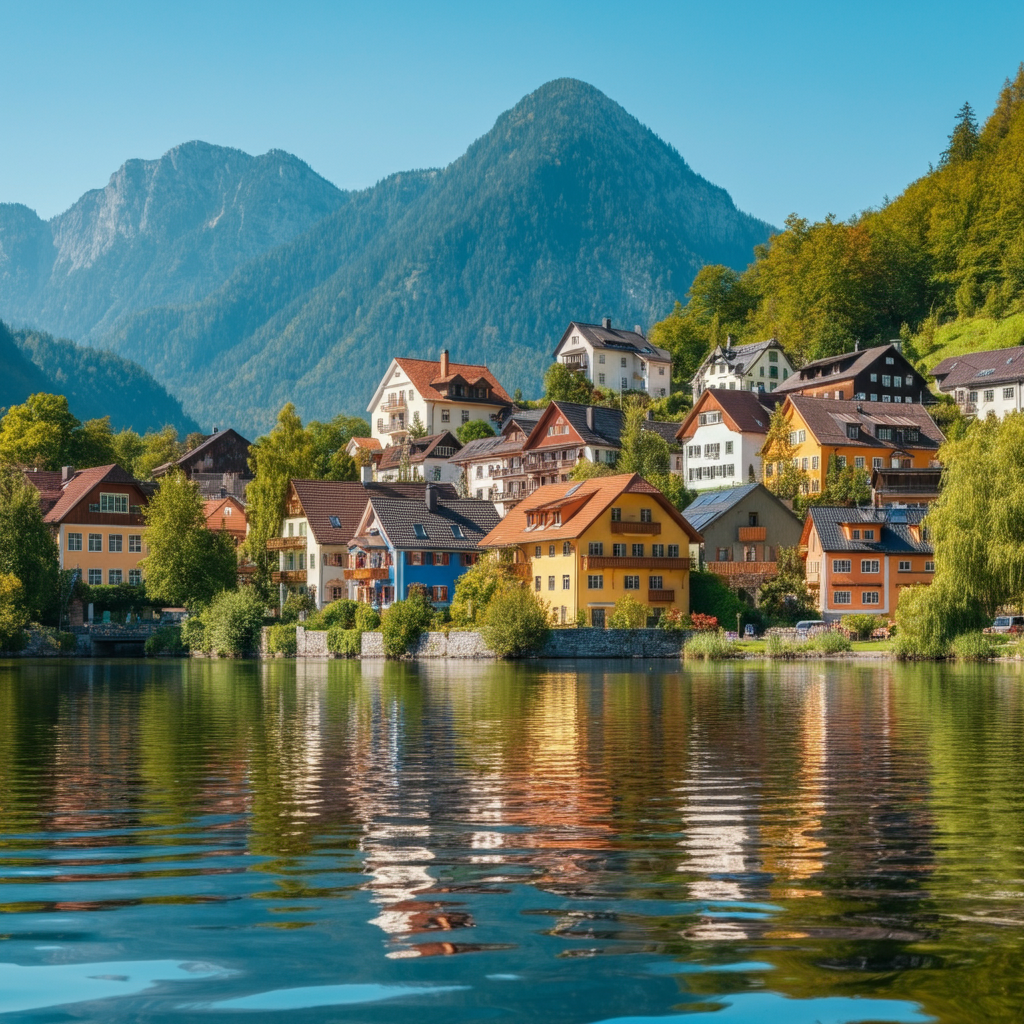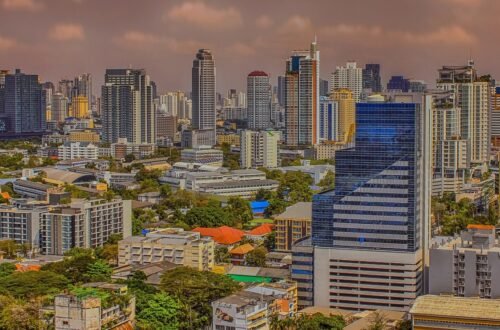Germany’s Christmas markets are a whirlwind of festive joy. Picture twinkling fairy lights, the scent of roasted almonds mingling with mulled wine, artisan stalls brimming with handcrafted ornaments, and the sound of carolers singing softly in the background. Few experiences capture the holiday spirit so completely.
If you dream of strolling through cobblestone streets lined with pine boughs and glittering lights, this guide is for you. We’re taking you through the 10 best Christmas markets in Germany, showcasing their unique features and cultural charm. By the end, you’ll know exactly where to experience the holiday magic at its finest.
What Makes German Christmas Markets Special?
A Rich History of Festivities
Dating back as far as the late Middle Ages, German Christmas markets (or Weihnachtsmärkte) were initially marketplaces where townsfolk could buy supplies for the cold winter months. Over time, they evolved into festive celebrations of the Advent season, complete with entertainment, food, and handmade gifts. Today, many of these markets retain their historical charm, giving visitors a glimpse into Germany’s yuletide traditions.
A Feast for the Senses
The heart and soul of German Christmas markets lie in the experience itself:
- Traditional Crafts: From hand-carved nutcrackers to delicate blown-glass ornaments, these markets celebrate artisanal traditions.
- Festive Foods: Savor bratwurst, stollen (Christmas cake), and steaming mugs of glühwein (mulled wine).
- Enchanting Ambiance: Think glowing lights, cozy wooden stalls, and a soundtrack of Christmas carols that stir nostalgia.
The Atmosphere of Pure Joy
It’s not just the food, lights, or crafts. It’s the sense of community, the cheerful chatter of families, and the magic of sharing traditions that make these markets unforgettable.
The 10 Best Christmas Markets in Germany
1. Nuremberg Christkindlesmarkt
One of the most famous markets in the world, Nuremberg’s Christkindlesmarkt is steeped in tradition. Held in the city’s medieval old town, it features over 180 wooden stalls selling everything from lebkuchen (gingerbread) to handmade ornaments.
Don’t Miss:
- The Christkind Parade: A unique opening ceremony led by the angelic figure of Christkind.
- Nuremberg Sausage Sandwiches paired with mulled wine.
- Souvenirs like the iconic Zwetschgenmännle (plum figurines).
2. Dresden Striezelmarkt
Germany’s oldest Christmas market, Dresden Striezelmarkt, dates back to 1434. Located in Altmarkt Square, this festive haven is named after the city’s famous Stollen cake, also known as Striezel.
Highlights:
- A giant, 14-meter-high Christmas pyramid, a hallmark of Saxon tradition.
- Sample freshly baked stollen at the Stollenfest.
- Handmade goods including candles and wooden toys.
3. Munich Christkindlmarkt
Held on the Marienplatz square, Munich’s market dazzles under the imposing Cathedral of Our Lady. It combines Bavarian traditions with festive charm.
Top Experiences:
- Find specialty items like Alpine wool slippers and ornaments.
- Sip Feuerzangenbowle, a fiery variation of mulled wine.
- Explore the Kripperlmarkt, dedicated to nativity scene statuettes.
4. Rothenburg ob der Tauber Reiterlesmarkt
This picture-perfect market is set in one of Germany’s most well-preserved medieval towns. Rothenburg’s Reiterlesmarkt feels like stepping into a fairy tale.
Must-See Attractions:
- The snow-dusted, half-timbered houses providing a breathtaking backdrop.
- Sample delicacies like schneeballen (snowball-shaped pastries).
- The historic Christmas Museum nearby.
5. Cologne Christmas Markets
Cologne offers not one, but several spectacular Christmas markets. The most famous is the one held in front of its stunning Gothic cathedral.
Key Highlights:
- Sip some Kölsch beer alongside spicy Christmas cookies.
- Admire craftsmen at work in the market’s dedicated artisan zone.
- The market by the Rhine River, ideal for waterfront views.
6. Berlin Christmas Markets
The capital offers over 70 Christmas markets, catering to every taste. Among the best are the Gendarmenmarkt and the Spandau Christmas market.
Don’t Miss:
- Gendarmenmarkt’s luxury handcrafted items and gourmet treats.
- Spandau’s medieval vibes with fire eaters and live music.
- Vegan and eco-friendly markets for the conscious visitor.
7. Hamburg Christmas Markets
Against the backdrop of the Town Hall, Hamburg’s Christmas markets sparkle with maritime charm.
Highlights:
- The flying Santa show above the market stalls.
- Regional treasures, from seafood specialties to North German crafts.
- The Winterwald market, with its magical snowy forest setup.
8. Frankfurt Christmas Market
Located in Römerberg Square, Frankfurt’s market combines the city’s modern vibrancy with historic depth.
What to Enjoy:
- The gigantic Christmas tree that lights up the market.
- Frankfurt’s famed apple cider (Apfelwein).
- Unique gifts like leather goods and German wines.
9. Stuttgart Christmas Market
With roots going back over 300 years, Stuttgart’s Christmas market is one of the oldest and most decorated in the country.
Standout Features:
- Over 280 stalls decked with elaborate Christmas decorations.
- Delicious roasted chestnuts and Black Forest specialties.
- Live concerts and performances on the market stage.
10. Trier Christmas Market
Nestled in Germany’s oldest city, Trier’s Christmas market near the Roman Gate offers a mix of history and festive cheer.
Not to Miss:
- Mulled Mosel wine from local vineyards.
- Trier’s signature gingerbread cookies.
- Surrounded by Roman architecture, it is the perfect blend of old and new.
Tips for Visiting German Christmas Markets

When to Go
- The best time to visit is weekday evenings to escape the weekend rush.
- Most markets start at the end of November and run until Christmas Eve.
What to Try
- Glühwein: Spiced mulled wine served warm in souvenir mugs.
- Bratwurst: Juicy sausages served in crispy rolls.
- Kartoffelpuffer: Crispy potato pancakes, often served with applesauce.
What to Buy
- Intricate wooden nutcrackers, ornaments, and hand-carved figurines.
- Warm wool scarves, gloves, and other cozy accessories made by local artisans.
- Festive seasonal treats packaged for gifting.
Getting There and Staying
- Consider public transport for city markets to avoid parking hassles.
- Opt for accommodations close to the market for convenience.
Frequently Asked Questions (PAA)
What is the oldest Christmas market in Germany?
The Dresden Striezelmarkt, established in 1434, holds the title of Germany’s oldest Christmas market.
Are dogs allowed at German Christmas markets?
Most markets are pet-friendly, but dogs should be leashed due to the crowds.
What should I wear when visiting a Christmas market?
Warm layers, comfortable boots, and gloves are a must to stay cozy while outdoors.
Discover the Magic of Germany’s Christmas Markets
German Christmas markets aren’t just about shopping. They’re a celebration of tradition, joy, and everything the holiday season embodies. Whether you’re sipping mulled wine in Nuremberg or marveling at medieval charm in Rothenburg, each market tells a story that stays with you forever.
Feel like you’re ready to plan your trip? Make your Christmas unforgettable by exploring the best of these magical markets.





